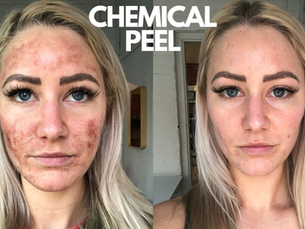Symptoms to Watch For (PRP Treatment)
Thinning Hair or Widening Part
Noticing more scalp showing, a receding hairline, or shedding more than usual.
Dull, Tired-Looking Skin
Loss of glow, uneven tone, or fine lines that make your skin look older than you feel.
Persistent Acne Scars or Texture Irregularities
Old acne scars, rough patches, or uneven skin that hasn’t improved with creams.
Hair That’s Lost Volume or Strength
Strands feel finer, weaker, or don’t grow as long as they used to.
Dark Circles or Under-Eye Hollowing
Skin beneath the eyes looks sunken, shadowed, or constantly tired.
Slow Healing or Skin Damage
Skin that takes longer to heal after cosmetic procedures, injury, or inflammation.

PRP (Platelet-Rich Plasma) treatment uses your own blood, which is processed to concentrate platelets. These platelets are then injected into areas like the scalp or skin to promote natural healing, collagen production, and tissue regeneration.
PRP is commonly used for hair loss (especially androgenic alopecia), skin rejuvenation (wrinkles, dullness, acne scars), and even joint or sports-related injuries due to its natural healing properties.
Yes. Because PRP uses your own blood, the risk of allergic reactions or rejection is extremely low. Side effects are minimal and may include mild swelling, redness, or tenderness at the injection site.
Most patients need a series of 3–4 sessions spaced about 4–6 weeks apart, depending on their condition and goals. Maintenance sessions may be recommended every 6–12 months.
Results vary by individual, but many people begin to see improvements in 3–6 weeks, with continued progress over several months as collagen builds or hair growth cycles respond.
PRP is a non-surgical, minimally invasive treatment with little to no downtime. Most people return to their regular activities the same day, though it's best to avoid intense exercise or heat exposure for 24–48 hours.
Our Expert Dermatologist.
Our expert dermatology team combines medical excellence with a personalised approach.
Led by GMC-registered doctors, we bring years of experience in treating both complex skin conditions and delivering advanced cosmetic care. At Manchester Dermatology Clinic, you’re in the hands of trusted specialists who are dedicated to helping you feel confident in your skin.
Dermatologist
Dr Maram al Shaikh

Dr Al Shaikh is passionate about treating both medical and cosmetic concerns, from eczema and psoriasis to pigmentation and ageing skin.
Dermatology Practitioner
Syedehzahara

With a strong foundation in clinical dermatology, Syedehzahara provides expert support in diagnosing and managing a wide range of skin conditions.
Doctor
Nadia Abu Hussein

Dr Nadia is a GP who has a focus in functional medicine and aesthetics. She has a background in surgical training and hold a Postgraduate Diploma in Practical Dermatology & Dermoscopy.








